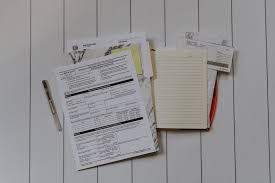
10 Tax Tips Every Freelance Accountant Should Know
Tax season can be daunting, especially for freelance accountants who must not only manage their own taxes but often advise clients on tax-related matters. Staying updated with tax regulations and adopting effective strategies is essential for success. At FreelancerBridge, we’ve compiled the top 10 tax tips every freelance accountant should know in 2025. These tips will help you maximize deductions, stay compliant, and optimize your tax planning — ultimately boosting your financial health and professional credibility.
Long Description
Navigating the complex world of taxes is a critical skill for freelance accountants. Whether you are managing your own tax filings or assisting clients, understanding key tax strategies can save significant money and prevent costly mistakes. Here are 10 essential tax tips that every freelance accountant should master to ensure compliance and efficiency:
1. Keep Accurate and Detailed Records
Meticulous record-keeping is the foundation of tax success. Track all income, expenses, invoices, and receipts. Digital bookkeeping tools can automate much of this process, making tax time smoother and reducing audit risk.
2. Understand Deductible Expenses
Freelancers can deduct many business-related expenses, such as office supplies, software subscriptions, home office costs, internet bills, travel expenses, and professional memberships. Knowing what qualifies helps lower your taxable income.
3. Separate Personal and Business Finances
Maintain separate bank accounts and credit cards for your freelance accounting business. This simplifies tracking deductible expenses and avoids confusion during audits.
4. Take Advantage of Home Office Deduction
If you work from home, the IRS allows deductions for a portion of your home expenses based on your office space. Ensure you meet the criteria and keep detailed calculations to justify the deduction.
5. Make Quarterly Estimated Tax Payments
Unlike traditional employees, freelancers must pay taxes quarterly to avoid penalties. Calculate and submit estimated payments on time using IRS Form 1040-ES to stay compliant.
6. Know Your Self-Employment Tax Obligations
Freelance accountants are responsible for both employer and employee portions of Social Security and Medicare taxes, collectively called self-employment taxes. Plan accordingly to avoid surprises.
7. Maximize Retirement Contributions
Contributing to retirement accounts like SEP-IRA or Solo 401(k) can reduce your taxable income while helping you save for the future. These plans have higher contribution limits ideal for freelancers.
8. Keep Up with Changing Tax Laws
Tax codes evolve regularly. Freelance accountants should stay informed on federal and state tax updates, deductions, and credits to optimize filings and advise clients accurately.
9. Use Accounting Software for Tax Planning
Leverage modern accounting software to generate real-time tax reports, track deductible expenses, and forecast tax liabilities. Many tools integrate with tax preparation software for seamless filing.
10. Consider Hiring a Tax Professional for Complex Issues
Even expert freelance accountants can benefit from consulting tax specialists for complex matters like multi-state taxes, international income, or business entity structuring to minimize tax liability.
Why These Tax Tips Matter for Freelance Accountants
- Ensure Compliance: Avoid costly penalties by understanding tax deadlines and obligations.
- Maximize Deductions: Save money by identifying all eligible business expenses.
- Improve Cash Flow: Strategic tax planning helps manage quarterly payments and reduces surprises.
- Enhance Professional Credibility: Being tax-savvy increases client trust and referral opportunities.
- Support Business Growth: Efficient tax management allows reinvestment in skills and tools.
How FreelancerBridge Helps Freelance Accountants
At FreelancerBridge, we provide resources, tips, and connections to help freelance accountants thrive in their business. Use our platform to discover the latest industry trends, connect with clients who value your expertise, and access tools to streamline your financial management.













